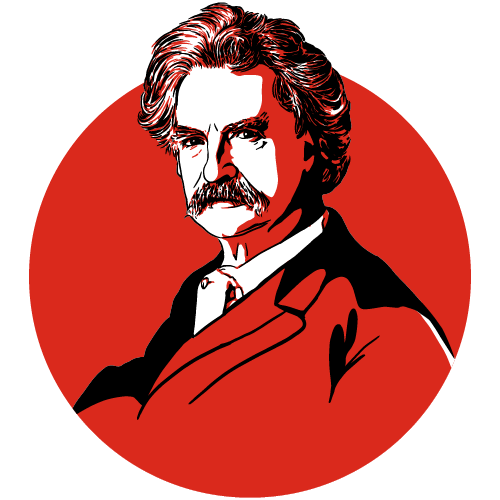Mark Twain
Articles
Historical Quotes
View more from News & Articles or Primerus Weekly

By Tom Kirvan
The classic novel, “The Adventures of Huckleberry Finn,” was published by famed author Mark Twain on February 18, 1885, stirring controversy about its anti-slavery content. Decades later, the book sparked criticism from an altogether different perspective, as African American groups in the 1950s objected to its “racist portrayal” of Black characters.
The vastly different opinions of the book by Twain (the pen name belonging to Samuel Langhorne Clemens) have helped make it a must-read for generations of literature lovers. The character of Huck Finn, of course, was first introduced as the best friend of Tom Sawyer, the hero in the 1876 book, “The Adventures of Tom Sawyer.” Viewed by Twain as a sequel to his “Sawyer” book, the 1885 novel revolving around Huck Finn was seen as much more serious in tone, focusing on the evils of slavery and other aspects of life in the South.
Labeled a masterpiece by many literary experts, “The Adventures of Huckleberry Finn” drew the highest of praise from author Ernest Hemingway, one of the giants of American literature. Hemingway declared that the book marked the beginning of American literature, stating: “There was nothing before. There has been nothing as good since.”

Twain, of course, was a master at turning a phrase and was widely known as “the greatest humorist the United States has produced.” Born in 1835 in Missouri, Twain was raised in Hannibal, Mo., a port town on the Mississippi River that provided the setting for both “Sawyer” and “Finn.” Revered for his writing skill, Twain also was an acclaimed public speaker, delighting audiences around the country with his wit and political insight, noting that “if you tell the truth, you don’t have to remember anything.”
Other treasures from Twain: